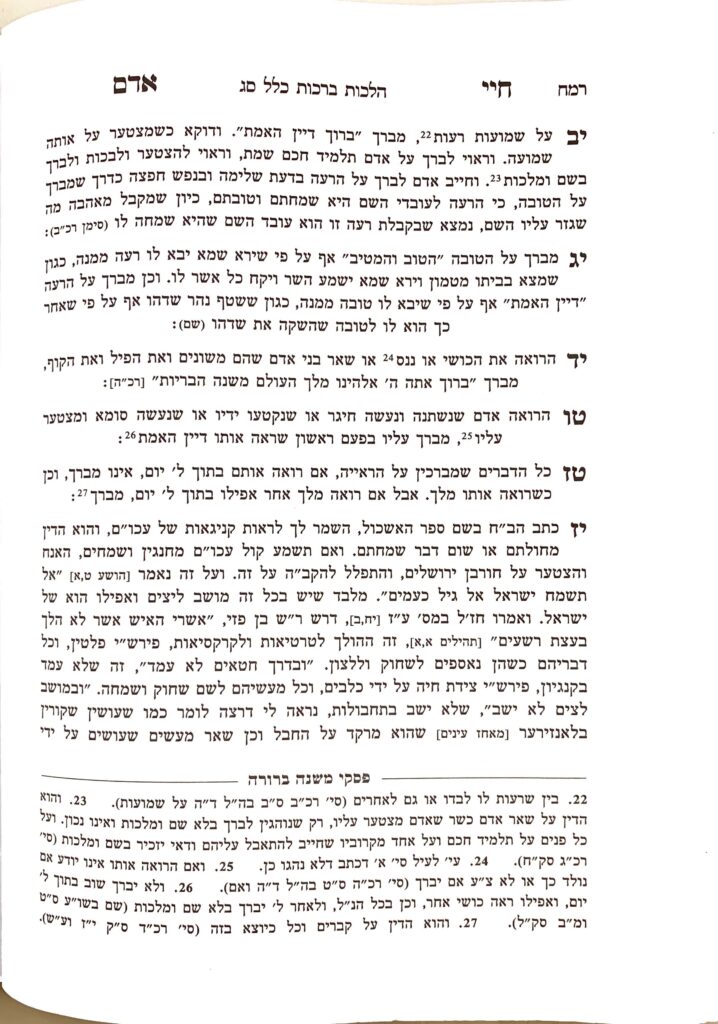We have finished siman 12, regarding the bracha of dayan haemes. Today, we will clarify the most appropriate time to make the bracha. The most appropriate time to recite the bracha is at the moment that one receives the news. If one is present at the time of death, the bracha should be made at that point. If the bracha was not made at either of those times, the minhag is to make the bracha during the levaya. The poskim describe that the bracha should be recited b’sha’as chimum; that is, a moment of heightened emotion. Therefore, many recite the bracha at the beginning of the hespedim, or at the moment the aron is lowered into the ground.
If one has a relative over whom they are not required to be in aveilus (i.e., a relative who is not one of the seven close relatives), we have learned (shiur 1228) that the minhag has become to refrain from reciting the bracha with Hashem’s name. However, if a person feels close enough to the deceased relative that they wish to recite the bracha with Hashem’s name, they may do so, as we have learned that technically one is able to make the bracha with Hashem’s name on any person with whom they feel close.
In siman 13, the Chayei Adam discusses the bracha of hatov vehametiv. When something good happens to a person, they recite the bracha of hatov vehametiv. One should recite this bracha even if the good may have a negative consequence in the long run. For example, a person recites the bracha of hatov vehametiv on finding a treasure, even if the newfound wealth leads to the king confiscating all his property and leading to a net loss.
Similarly, a person recites the bracha of dayan haemes on bad news, even if there may be a positive benefit in the long run. For example, if one’s field flooded and destroyed their crops, one recites the bracha of dayan haemes, even though in the long run the field may benefit from the extra irrigation and fertilization
Regarding the bracha of hatov vehametiv, even though a person should recite this bracha for any good tidings, such as a newborn grandchild or sibling, the minhag has become to refrain from reciting the bracha. However, since one is technically allowed to recite the bracha with Hashem’s name, they may do so if they have strong feelings about the event.
It is important to understand why the minhag has become to refrain from these brachos. The gemara states that the bracha of shehecheyanu is reshus, optional. Therefore, some poskim suggest that in the same way shehecheyanu is a reshus, hatov vehametiv is a reshus as well. The Biur Halacha writes that this thought process is mistaken, and although shehecheyanu is a reshus, hatov vehametiv and dayan haemes are a chiyuv. Nevertheless, the minhag has become to refrain from the bracha. Therefore, if one feels strongly that they wish to recite it, they may do so.
Summary
- The most appropriate time to recite dayan haemes is when one receives the news, or at the moment of death, if one is present. Otherwise, one should recite the bracha b’sha’as chimum at some point during the levaya.
- Although one should technically recite the bracha of hatov vehametiv on any good tidings, the minhag has become to refrain from reciting it. However, if one feels strongly that they wish to recite it, they may do so.



